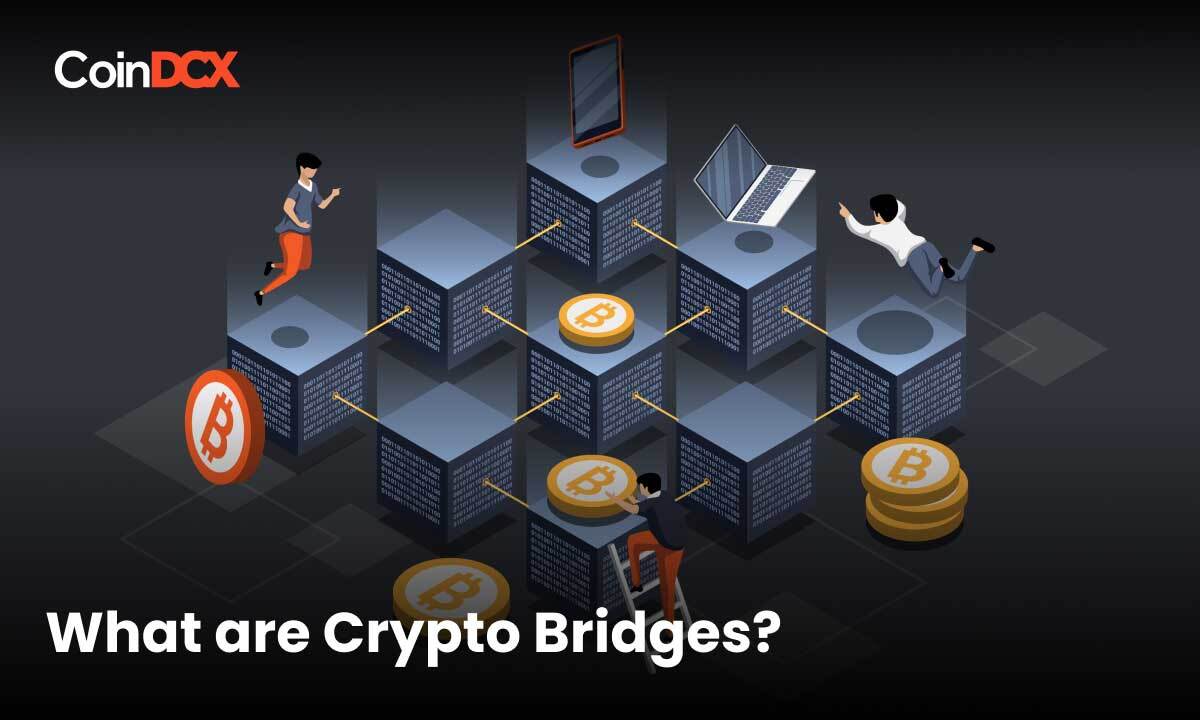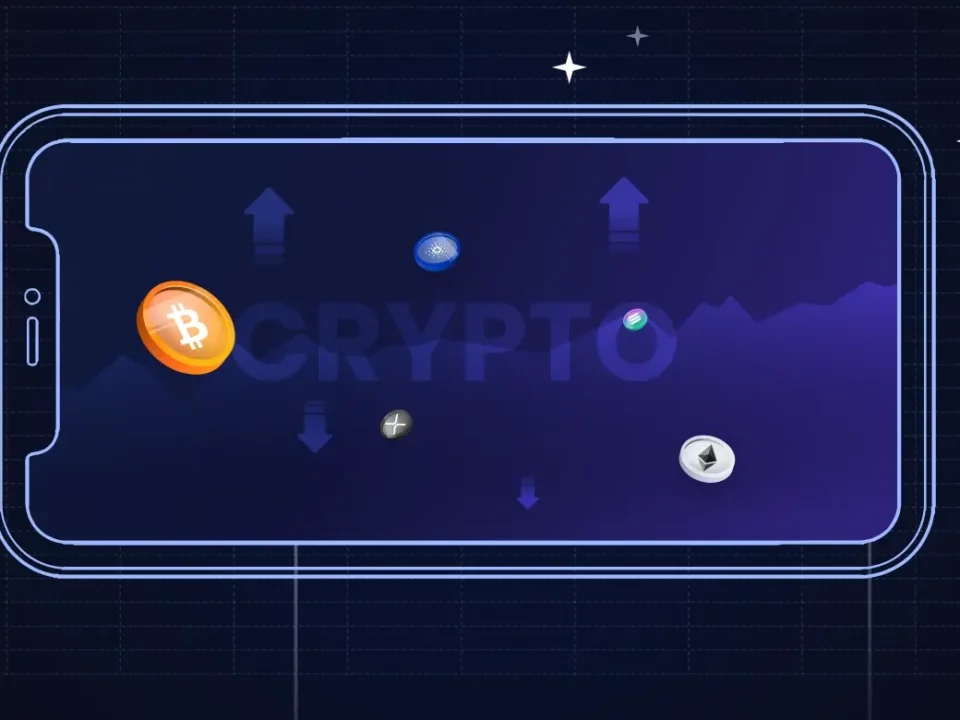What are Crypto Bridges & Popular Crypto Bridges
Crypto bridges are essentially crypto wallets that allow you to hold and trade multiple crypto in one place. They are becoming increasingly popular as more and more people invest in crypto. Here we will take a look at some of the most popular crypto bridges and how they work.

Table of Contents
ToggleIntroduction
In the very beginning, there was one crypto asset – Bitcoin. But since then, there has been an explosion in the space with tens of thousands of crypto assets being built by budding developers across the globe who want to make a difference in the world and solve real-world problems in a truly decentralized way. In fact, to date, we have nearly 22,000 different kinds of crypto assets in the world. While that is a good thing and means there are developers out there who want to build meaningful products and services for users using blockchain technology.
However, most of these blockchain networks and systems are generally being built by small teams of developers and coders who work pretty much in silos, and thus at the end of the day, interoperability has become a major problem in the crypto space. A product built on one blockchain can’t be used on another. Means of value transfer can only be effective if these are truly interoperable and can be accessed by users across various blockchains.
That is where bridges come in.
Read More: What are Crypto Airdrops?
So what are crypto bridges?
Crypto bridges or blockchain bridges are essentially a method that facilitates interoperability amongst various blockchains. They attempt to connect otherwise isolated crypto ecosystems so that users can share data and even transfer assets across separate blockchains which have their own individual technical and economic rules.
Interoperability becomes a tough task, especially in the crypto world as blockchains are not inherently interoperable. This means that data and assets on one blockchain can’t be transferred to another. Many projects try to solve this problem by building these crypto bridges between two blockchains to facilitate data and asset transfers. However, each cross-chain bridge works to connect one particular pair of blockchains only and therefore one can’t have one bridge to connect all blockchains.
For instance, if a team builds a bridge between ETH and SOL, then that bridge cannot be used to move assets from say, XRP to ETH. Also, the process requires users who have crypto wallets that are compatible with that particular bridge too to be able to transfer any assets. Thus, crypto bridges allow various blockchain networks to be able to build off each other’s strengths. For example, Bitcoin doesn’t have to reconstruct itself to build smart contract capabilities in its network because other networks can fill that gap for Bitcoin!
How do cross-chain bridges work?
Typically, a crypto bridge works by porting tokens from one network to another using a concept known as ‘wrapping’ – which is a process where the bridge itself locks the original tokens in a smart contract and creates an equivalent amount of ‘wrapped’ tokens to be deployed on the target blockchain. A simple example would be, wETH for ETH or wBNB for BNB.
The other way that one can focus on interoperability in a crypto ecosystem is by building layer-0 protocols. Layer-0 protocols essentially allow other blockchains to build on top of them by offering the blockchains a common underlying layer. Thus effectively, the blockchain doesn’t need bridges at all because each blockchain is building on top of layer-0 and connects to other blockchains right from the beginning itself.
Types of crypto bridges
There are two categories of bridges that can occur. The first is based on the system the bridge employs, be it a trusted centralized intermediary or a trustless decentralized smart contract to process the bridge. The second category in the kind of bridge it is, be it a unidirectional or a bidirectional bridge between two blockchains.
Trusted bridges
A trusted bridge is a category of crypto bridges that depends on a central entity. These can include external verifiers that safely facilitate the transfer of data and value between the two blockchains. However, the flip side to this is that users will essentially have to give up control over their own crypto assets and trust a third party to transfer them, which is a major contradiction to the idea of decentralization and self-custody.
Trust-less bridges
As the name suggests, a trustless bridge is one that doesn’t rely on centralized or third-party intermediaries to facilitate the transfer between two blockchain networks. Instead, they work in a truly decentralized manner by utilizing smart contracts that manage the entire process of bridging. Thanks to this, users can maintain full ownership of their own assets. Hence, trusted bridges depend on the bridge operator’s reputation, trustless bridges will only have to look to the underlying code.
Unidirectional bridges
As the name suggests, a unidirectional bridge is a crypto bridge that enables users to move their crypto to another network only in a single direction without the possibility of sending them back via the same route. Thus, these are bridges that are primarily used for one-way transactions.
Bidirectional bridges
Converse to the above type, bidirectional bridges are those which allow crypto transfers to happen in both directions. They are a more seamless way to transfer data and crypto between two networks and it also becomes convenient for a user who frequently uses two networks to send and receive crypto.
Popular crypto bridges you should know about!
Let us take a look at some of the most popular types of cross-chain crypto bridges you should be aware of.
Polygon Bridge
Polygon bridge is a trustless, two-way, cross-chain crypto bridge that facilitates communication between two networks, essentially Polygon and Ethereum. The main reason behind building the Polygon bridge is to facilitate transferring of NFTs and ERC tokens from the Polygon side chain by leveraging smart contracts.
It was first proposed in early 2020 by the Polygon team to increase interoperability between the Polygon and Ethereum networks and it went live in the same year. This bridge now enables users to take advantage of Ethereum’s popularity and security while utilizing Polygon’s lower fees and faster transaction times.
Solana Wormhole Bridge
Wormhole is yet another bidirectional communication bridge between Solana and other top decentralized finance (DeFi) networks. Existing projects, platforms, and communities are enabled to move tokenized assets seamlessly across blockchains and benefit from Solana’s incredibly high transaction speeds and lower transaction costs.
The goal behind the creation of Wormhole was to solve the common issues with DeFi such as high gas fees, price slippage, and network congestion faced by other networks like Ethereum. Also launched back in 2020, it offered a decentralized way to bridge ERC-20 and SPL between Ethereum and Solana. As of writing, Solana Wormhole allows crypto transfers between 17 chains!
Avalanche Bridge
This is yet another bidirectional bridge that was built by Ava Labs, especially for use by retail users back in July 2021. It was built to replace the earlier existing Avalanche-Ethereum Bridge and also contains additional features like significantly lower transaction costs than its predecessor.
Additionally, it focuses on improving the asset-bridging experience of users through its emphasis on security, faster finality, and lower fees. It also connects Ethereum and Avalanche by enabling users to transfer Ethereum ERC-20 tokens to the Avalanche mainnet.
Additional Read: Top 8 Altcoins in 2023
Conclusion
Thus, in conclusion, one can clearly understand the importance of crypto bridges in the world of blockchain and Web3. To bring about more inclusivity, growth, mainstream adoption, interoperability, and seamless cross-chain transfer of data and crypto assets across blockchain networks needs to take top priority. If we have smooth interoperability between chains, more advanced and useful projects and applications can be built on top of these to solve real-world problems more effectively and efficiently.
However, using crypto bridges also entail certain risks that all crypto users must be aware of. In the past couple of years, various cross-chain bridges have been victims to some of the biggest hacks and compromises ever seen in the crypto industry, and thus thorough research of these bridges before actually using these bridges to transfer your own crypto assets is a must.
FAQs
What are the best bridges in crypto?
Some of the most popular and well known cross-chain bridges in the crypto industry include Polygon Bridge, Solana's Wormhole Bridge, the Ethereum-Bitcoin bridge and many others.
Are crypto bridges safe?
While crypto bridges are built to be safe, there can be vulnerabilities in any new technology. Crypto traders need to understand that cross-chain bridges are a new technology and this a prime target for hackers.
What are the different types of crypto bridge?
There are two broad categories of crypto bridges, the first is the trustless and the trusted bridges - that do or do not depend on centralized intermediary to perform the function of a bridge. The second category is the unidirectional and a bidirectional bridge, depending on the feature it provides.
Related posts
Understanding the Different Types of Cryptos: Coins, Tokens, Altcoins & More Explained
Explore the major types of crypto assets and their unique roles.
Read more
PAWS Telegram Game: The New Tap to Earn Game That Is Beating Hamster Kombat
Discover how to play and earn with PAWS Telegram game.
Read more

